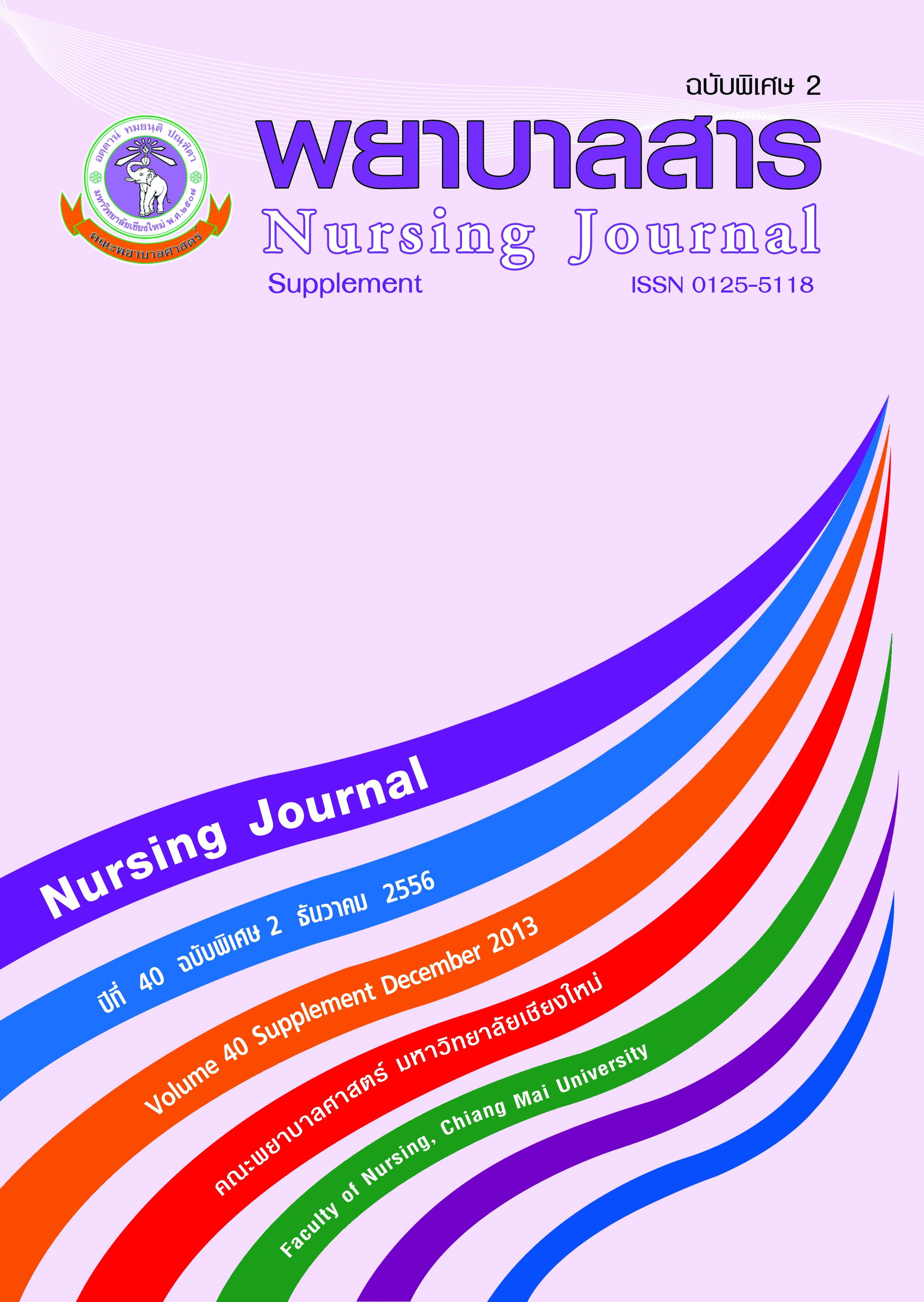กระบวนการพัฒนาการสร้างเสริมสุขภาพสามเณรโรงเรียนสมเด็จพระพุทธชินวงศ์
Keywords:
การสร้างเสริมสุขภาพ, สามเณร, การวิจัยเชิงปฏิบัติการอย่างมีส่วนร่วมAbstract
บทคัดย่อ
สามเณรจัดเป็นกลุ่มเด็กวัยรุ่นและเยาวชนที่เป็นทรัพยากรของประเทศและเป็นพุทธทายาท ในอนาคตการสร้างเสริมสุขภาพในกลุ่มสามเณรจึงเป็นกระบวนการที่สำคัญในการเพิ่มความสามารถในการควบคุมและปรับปรุงสุขภาพตนเอง พัฒนาระบบการดูแลสุขภาพสามเณรอย่างมีประสิทธิภาพและต่อเนื่องรวมถึงการพัฒนาสิ่งแวดล้อมให้เอื้อต่อการสร้างเสริมสุขภาพของสามเณร การวิจัยครั้งนี้เป็นการวิจัยเชิงปฏิบัติการแบบมีส่วนร่วม (Participatory Action Research)มีวัตถุประสงค์เพื่อ พัฒนากระบวนการสร้างเสริมสุขภาพสามเณรในโรงเรียนสมเด็จพระพุทธชินวงศ์เก็บรวบรวมข้อมูลโดยการค้นคว้าจากเอกสาร แบบสอบถาม การสัมภาษณ์ทั่วไป การสัมภาษณ์เจาะลึก การสนทนากลุ่มและการสังเกตแบบมีส่วนร่วมและไม่มีส่วนร่วม ร่วมกับการใช้เทคนิค AIC (Appreciation Influence Control) เพื่อระดมความคิดและวางแผน ตรวจสอบความถูกต้องของข้อมูลแบบสามเส้า (data triangulation)
ผลการวิจัยพบว่า
โรงเรียนสมเด็จพระพุทธชินวงศ์ ตั้งอยู่ในวัดศรีโสดา จังหวัดเชียงใหม่ ให้การศึกษาแก่เด็กและเยาวชนชาย ส่วนใหญ่เป็นชาวเขาเผ่าต่างๆ ในภาคเหนือเข้ามาบรรพชาเป็นสามเณรเพื่อการศึกษา โรงเรียนไม่มีการดำเนินงานด้านสร้างเสริมสุขภาพอย่างเป็นลายลักษณ์อักษร สามเณรมีปัญหาสุขภาพ ได้แก่ ฟันผุ โรคผิวหนัง พฤติกรรมสร้างเสริมสุขภาพของสามเณรโดยรวมอยู่ในระดับปานกลาง
กระบวนการสร้างเสริมสุขภาพสามเณรในวัดศรีโสดา ประกอบด้วย การปรับประบวนทัศน์ การวิเคราะห์ปัญหา การวางแผนและกำหนดแนวทางการดำเนินงานสร้างเสริมสุขภาพ และการจัดทำโครงการสร้างเสริมสุขภาพ โดยมีโครงการและแผนการดำเนินงาน จำนวน 7 โครงการ ได้แก่ โครงการออกกำลังกายวันละนิดเพื่อสุขภาพกายดีชีวีมีสุขโครงการติดป้ายรณรงค์เขตวัดและโรงเรียนปลอดบุหรี่ โครงการ พัฒนาที่อยู่อาศัยและดูแลห้องน้ำ ห้องส้วมโครงการกำจัดขยะนำกลับมาใช้ใหม่เพื่อป้องกันโรคติดต่อโครงการสุขาภิบาลอาหารโครงการพัฒนาห้องพยาบาลและ โครงการสามเณรฟันดี ผลการดำเนินการแสดงกระบวนการและผลของการใช้การวิจัยเชิงปฎิบัติการแบบมีส่วนร่วมในการกระบวนการพัฒนาการสร้างเสริมสุขภาพสามเณร พบว่า สามเณร พระอาจารย์ และครูมีการพัฒนาทั้งความรู้และทักษะในการสร้างเสริมสุขภาพ และมีศักยภาพในการดำเนินโครงการเพื่อแก้ไขปัญหาของสามเณร เพื่อทำให้เกิดการพึ่งตนเองด้านสุขภาพและดูแลซึ่งกันและกันในหมู่สามเณรภายใต้การสนับสนุนของพระภิกษุและครูอาจารย์
คำสำคัญ: การสร้างเสริมสุขภาพ สามเณร การวิจัยเชิงปฏิบัติการอย่างมีส่วนร่วม
Abstract
Buddhist novice is a group of children and youth who become the country’s important resource and Buddhist descendants in the future. Health promotion is important process of enabling novices to increase control over, and to improve their health, develop health care system effectively and continuously as well as develop appropriate environmental health. This participatory action research was to develop the health promotion process for the novices studying at Somdej Phra Buddha Chinawong School. The data were collected from documents, questionnaires, general interview, in-depth interview, focus group discussion, participatory and non-participatory observation. The Appreciation Influence Control (AIC) technique was also used for brain storming and creating action plans. Data triangulation was used to establish the credibility and validity of data.
The results were as follows:
Somdet Phra Budda Chinawong School located in Sri-soda temple, Chiang Mai Province, provides education for male children and youths, mostly from diversity of hill tribes in northern Thailand. The school lacks of heath promotion policy and formal health promotion activities . The novices presented health problems including caries and skin diseases. Overall health promotion behaviors of the novices were at the moderate level.
The health promotion process for hill-tribe novices in Sri-soda temple consisted of paradigm shifting, problem analyzing, and health promotion planning and determining. Seven health promotion projects were established including exercise for health, the label for non-smoking campaign in both the temple and the school, residential development such as bedrooms and rest rooms, waste and recycle managements, food sanitation, nursing room development, and novices’ good dental health. The results showed that novices, monks, and teachers’ knowledge and skill regarding health promotion are increased. They, themselves have more potential to solve health problems among novices, as a result, the novices have the reliance on health and care for each other among the novice group.
Key words: Health Promotion, Buddhist Novices, Participatory Action Research
Downloads
How to Cite
Issue
Section
License
บทความที่ได้รับการตีพิมพ์เป็นลิขสิทธิ์ของวารสารพยาบาลสาร
ข้อความที่ปรากฏในบทความแต่ละเรื่องในวารสารวิชาการเล่มนี้เป็นความคิดเห็นส่วนตัวของผู้เขียนแต่ละท่านไม่เกี่ยวข้องกับมหาวิทยาลัยเชียงใหม่ และคณาจารย์ท่านอื่นๆในมหาวิทยาลัยฯ แต่อย่างใด ความรับผิดชอบองค์ประกอบทั้งหมดของบทความแต่ละเรื่องเป็นของผู้เขียนแต่ละท่าน หากมีความผิดพลาดใด ๆ ผู้เขียนแต่ละท่านจะรับผิดชอบบทความของตนเองแต่ผู้เดียว






